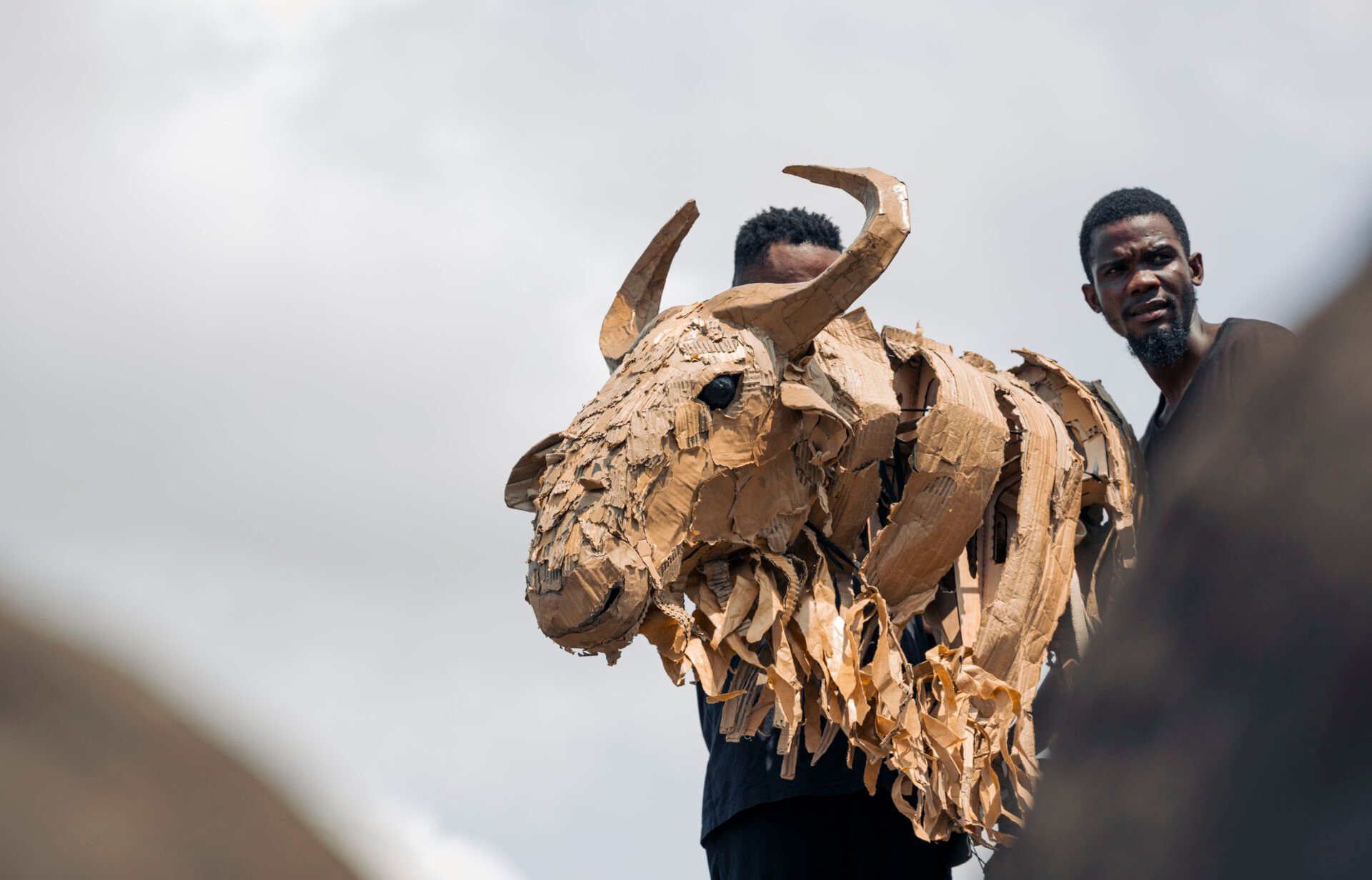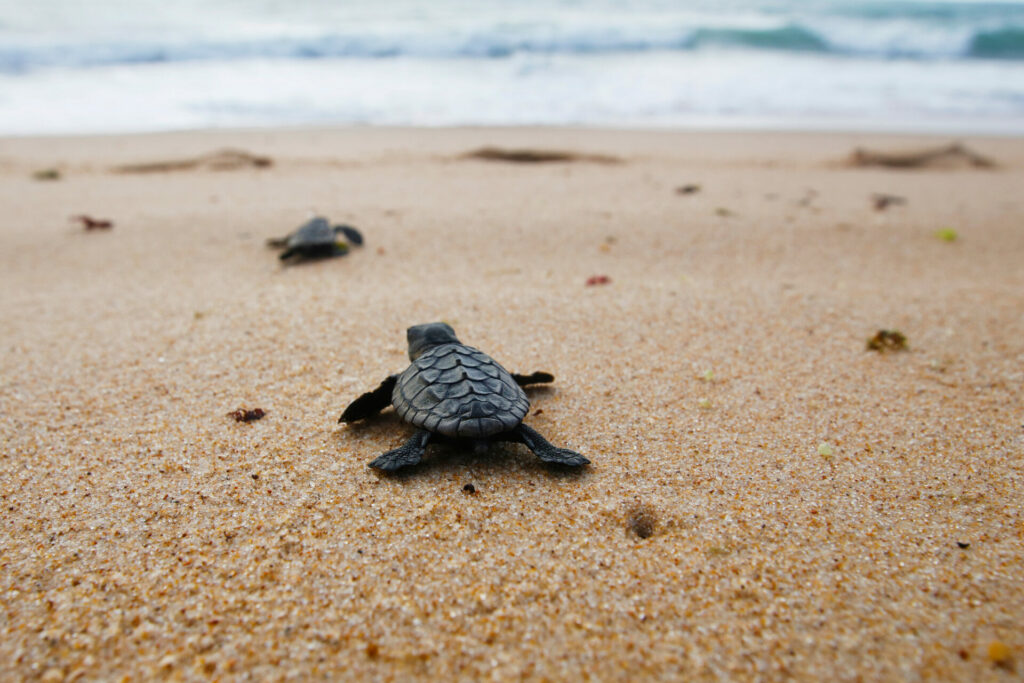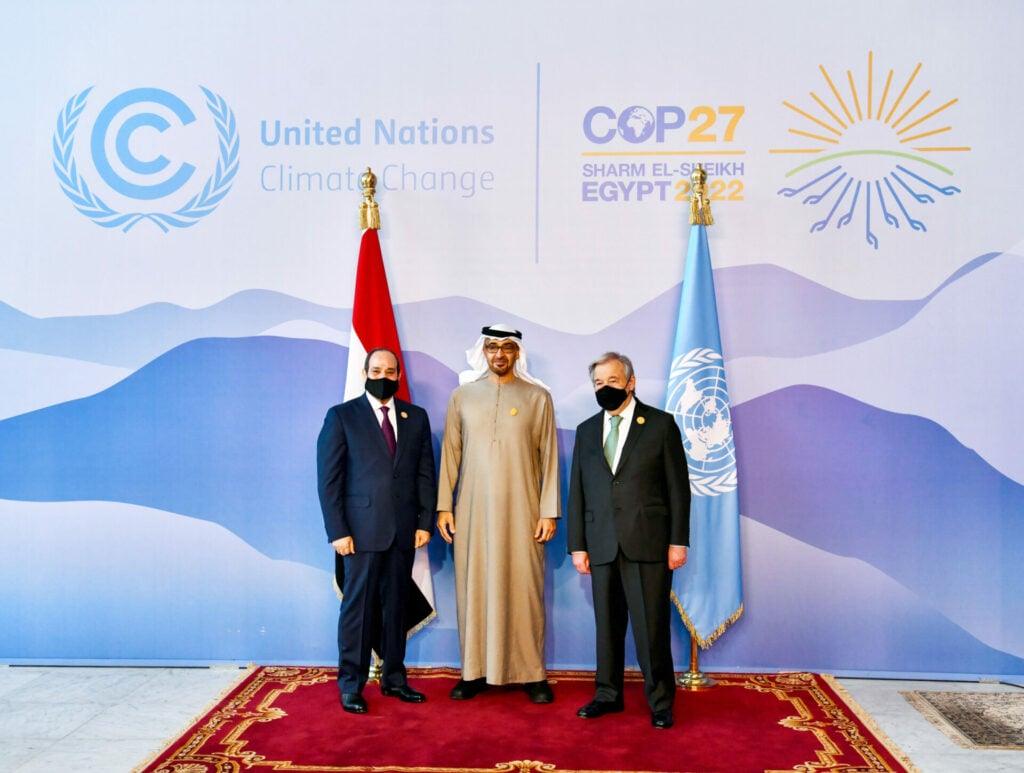Hundreds of life-size animal puppets made from recycled material have begun a 20,000km journey from central Africa to the Arctic Circle as part of an ambitious project to raise awareness of the climate crisis.
The public art initiative called The Herds journey began in Kinshasa’s Botanical Gardens on 10th April, and moved on to Lagos, Nigeria, the following week, where up to 5,000 people attended events performed by more than 60 puppeteers.
On its latest stop, Dakar in Senegal was filled with more than 40 puppet zebras, wildebeest, monkeys, giraffes and baboons as they travelled through Médina, one of the busiest neighbourhoods, where they encountered a creation by Fabrice Monteiro, a Belgium-born artist who lives in Senegal, and is known for his large-scale sculptures.
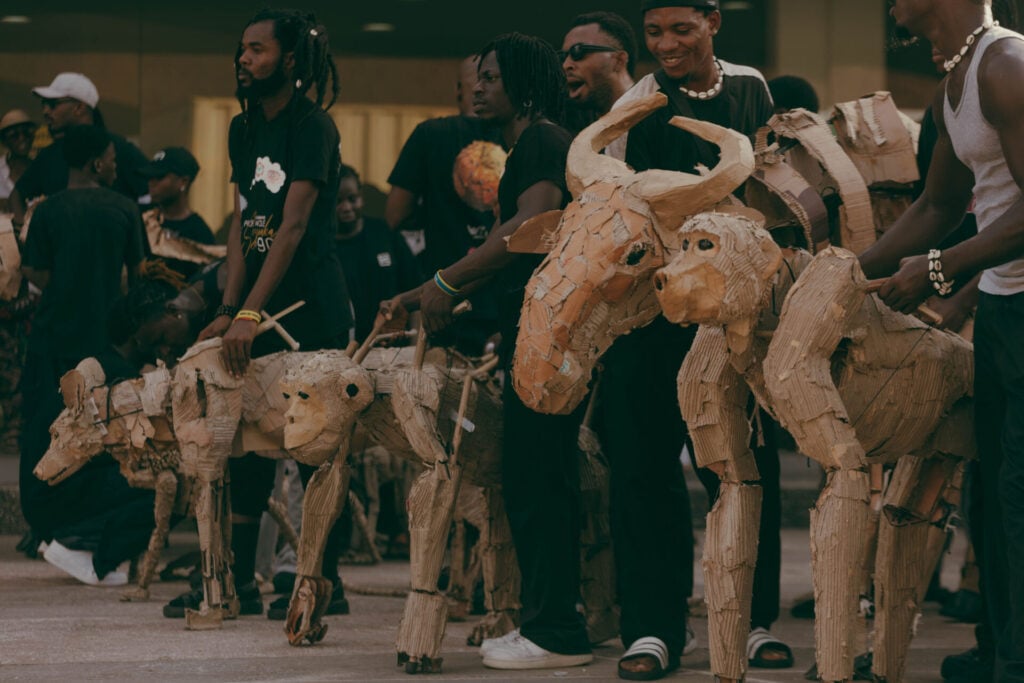
The first set of animal puppets was created by Ukwanda Puppetry and Designs Art Collective in Cape Town using recycled materials, but in each location local volunteers are taught how to make their own animals using prototypes provided by the creators.
It is the second major project from The Walk Productions, which introduced Little Amal, a four metre tall puppet, to the world in Gaziantep, near the Turkey-Syria border, in 2021.
Recycled Puppets Lead Powerful Call
This award-winning project, co-founded by the Palestinian playwright, designer and director Amir Nizar Zuabi, reached two million people in 17 countries as it travelled from Turkey to the UK, highlighting the issues faced by refugees.
‘The idea is that we’re migrating with an ever-evolving, growing group of animals,’ Zuabi said.
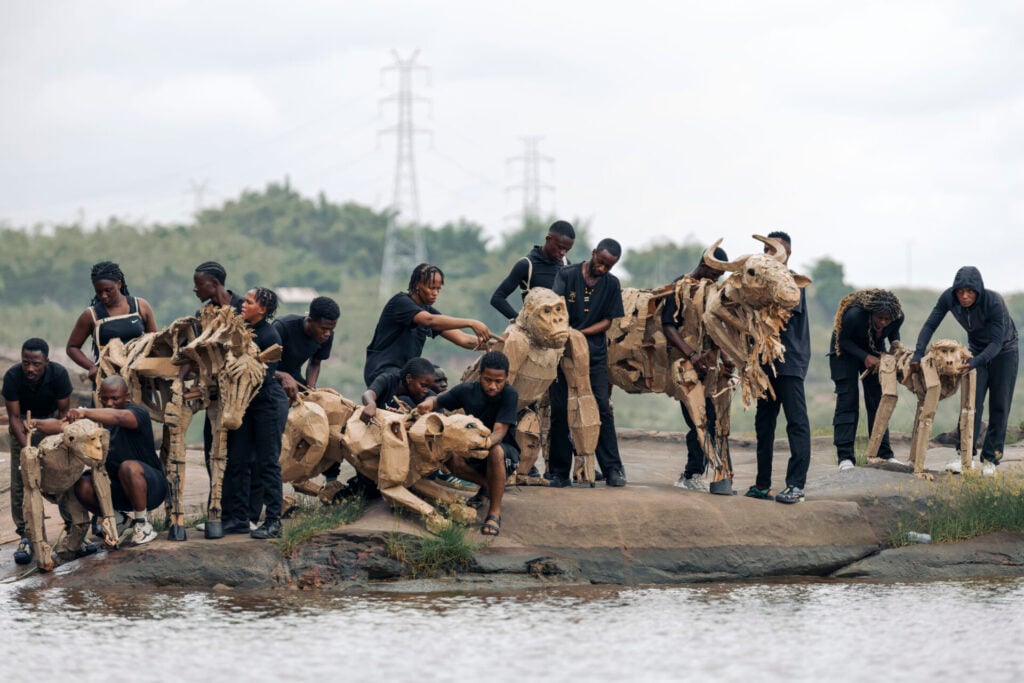
‘The Herds is an urgent artistic response to the climate crisis, a living, breathing call to action that stampedes across continents. Through the beauty and ferocity of these life-size creatures, we aim to spark dialogue, provoke thought, encourage engagement and inspire real change.’
As the animals cross continents they will grow in numbers and species including elephants, giraffes, antelope and lions, reacting and adapting to each new environment and its challenges.
Some local species will join the puppets en route such as vervet monkeys in Nigeria, wolves and red deer in Europe and reindeer in Norway.
Zuabi has spoken of The Herds as a continuation of Little Amal’s journey, as refugees often cite climate emergency as a reason for forced migration.
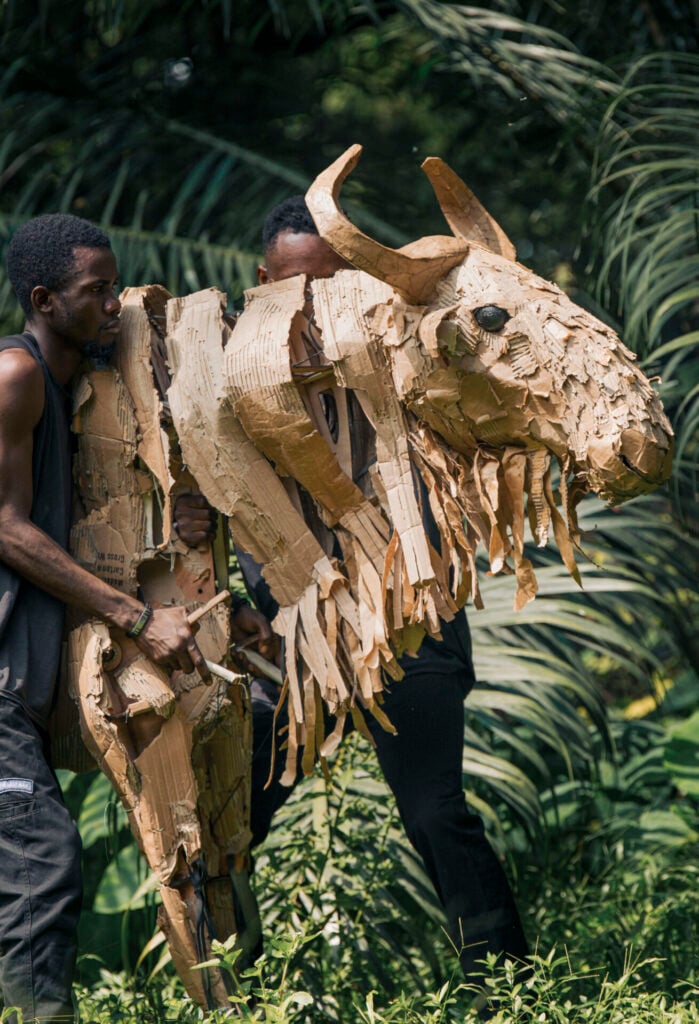
The intention is that the puppets will put the environmental emergency centre stage, and will encourage communities to launch their own events to discuss the significance of the project and get involved in climate activism.
‘The idea is to put in front of people that there is an emergency – not with scientific facts, but with emotions,’ said The Herds’ Senegal producer, Sarah Desbois.
‘We don’t have a tradition of puppetry in Senegal. As soon as the project started, when people were shown pictures of the puppets, they were going crazy.’
Growing as it moves, The Herds will make its way from Dakar to Morocco, then into Europe, including London and Paris, arriving in the Arctic Circle in early August.

